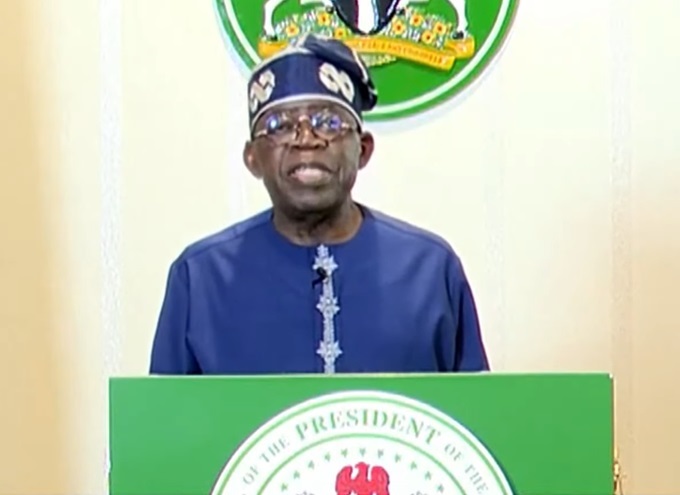I am a concerned Nigerian with interest in food security and general welfare of the people fueled by the belief that a food secure people are more loyal, more productive, can more easily recognise the importance of development and be law abiding.
For nearly three decades now, I haven’t witnessed the time when Nigerians are facing a more serious food security challenge as they’re facing now.
Throughout these years, I have come to realise the importance of relevant government policies in the food security matrix, which is a sine qua non for mass food production. Experts have averred that food production is a complex interaction between natural, social, economic and cultural conditions that are for most part beyond the control of both the farmers and consumers.
Government policies shape food production, consumption and its trade; and by extension how food secure a nation is at any point in time. In the last two decades, we witnessed an array of government policies geared towards improving the local production of crops. These crops are rice, wheat, and maize, which have become staples in both urban and rural areas and are also used as raw materials by industries. This effort was reinforced with closure of borders, heavy import duties, and generous concessions to participants in all stages of the respective value chains. Concurrent with the above policies was the liberalization of trade, both local and foreign, including forex markets.
In recent months food prices have seen an unprecedented surge, rising on almost a daily basis (and in some markets we witness a rise on hourly basis). At the same time, disposable income of most people stagnated, especially wage earners, such that the average Nigerian can no longer be able to feed his family. In fact, it has degenerated to a situation where most wage earners have become perpetual debtors and in some cases beggars. This situation holds in both rural and urban areas, and the impact has since crept into the rural areas.
As the rural food production has declined, supplies to urban areas also fell short of their demand. This has led to the depletion of the urban stockpiles thus the crisis is assuming a frightening dimension. WHAT REALLY HAPPENED?
The answer to the above is that the capacity of rural areas to produce has drastically reduced as a result of pervasive insecurity. In all regions of the country, farmers have been facing one security threat or the other, notably the Fulani herdsmen whose banditry is threatening lives and livelihood, especially in the North West and North Central. There are also pockets of other insurrections in the South East, South West, North East and South South, all combining to threaten farmers who grow the food in the rural areas.
The second answer is the activities of market associations in all zones. These associations have become a law unto themselves now. They fix prices arbitrarily on an almost daily basis through artificial scarcity they have deliberately created, imposing arbitrary levies, coercion, brigandage, and other methods of compelling both farmers, transporters and traders to compliance.
They defend their exploitative action by pointing to the numerous checkpoints mounted on our roads by government security operatives as well as those mounted by terrorists and other non- state actors where extortions are taking place on a massive scale, inflation caused by the devaluation of Naira and the seasonal variation of supply. All these may not be tenable, especially if the government has put the right machinery and policies in place.
Your Excellency Sir, in summary, the causes of food insecurity are: Inability of production centres to meet up with the demand due to intrinsic production issues beyond their control; persistent insecurity across all zones, which takes many forms and shapes, attributed to the activities of Boko Haram, Fulani herdsmen and other insurgents responsible for rural banditry, kidnappings, robberies, which are forcing farmers to abandon their land in fear for their lives. Activities of market associations increasing prices arbitrarily, Increased levies and extortion on the highways which jerk up transportation costs as well as static incomes of the population, forex and trading policy of the government have all contributed to scarcity and rising costs of foodstuff.
Your Excellency, our panacea to national food security is to look at the problems from their roots and uproot them. In doing so, the following suggestions may be considered:
- Incentivise agriculture by assisting farmers with cheap inputs such as seeds, fertilizers, pesticides and tractor hire purchase.
- Curtail completely the activities of all criminals (by whatever name they are called) responsible for insecurity in the language they’ll understand, which is the use of appropriate force.
- Monitor the activities of market associations, enforce price band limits, and impose appropriate sanctions in consonance with the extant laws.
- Strengthen the regulatory authorities like the FCCPC, commodity and marketing boards, produce departments and other relevant regulatory agencies.
- Monitor the activities of security agencies on the highways, set up limits and define rules of engagement and impose appropriate sanctions for default.
- Empower workers to set up cooperative societies and monitor their activities.
- Encourage farmers’ associations to form cooperatives so that they can access agric loans from banks, especially the Bank of Agriculture.
- Speed up implementation of the new minimum wage at both the federal and state levels to enable workers to engage in farming.
Your Excellency, these are in my humble opinion, the measures that should be urgently taken to improve food security.
Gobir is a former Director of Agriculture Planning in the Sokoto State government and could be reached via: bashgobir431@gmail.com

 Join Daily Trust WhatsApp Community For Quick Access To News and Happenings Around You.
Join Daily Trust WhatsApp Community For Quick Access To News and Happenings Around You.


